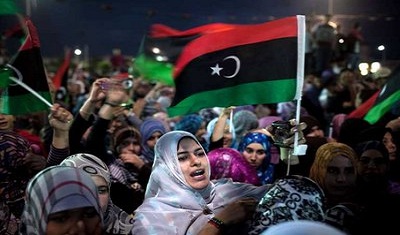Regime change in Tunisia, Egypt and Libya is already celebrated in the West as a crucial step towards political freedom.
Elections aim to lay the foundation for the democratisation of the region. The logical assumption is that the ongoing political reform process will fundamentally change the face of the Arab World. These developments, however, are likely to have an impact on foreign business investments and operations in these 'liberated' states, and there is a risk that the tendering processes and contract negotiations could become more complex, expensive and unpredictable.
The revolutions and the wave of the popular protests across the region have introduced key changes in the decision-making processes of the different states. The successful removal of the dictatorships in Libya, Tunisia and Egypt marks an end to the era of centralised decision-making. Over the past decades, international companies, often backed by their governments, and supported by local economic elites have dealt directly with the former leaders or their inner circles.
This is likely to change in the aftermath of 'Arab Spring'; rather than having direct access to the president, major business deals will have to go the long way through special parliamentary committees, parliamentary debates and a ratification process. The new draft constitutions are likely to weaken the political status and authority of the president and empower legitimately elected parliaments and the judiciary.
In fact, recent corruption cases now discussed openly in Iraq highlight to what extent bribery can backfire and, at the same time, undermine the credibility of the government. Moreover, the different political groups participating in the newly-elected parliaments will claim their right to have a say in the decision-making process and demand more transparency and accountability. Political parties will represent different and often conflicting interest groups, which will make the ratification of laws and the execution of business deals an even more difficult process and contract negotiations more complex.
It is also likely that business operations will become more expensive in the short-term. Many of the newly-elected governments will have to prove themselves to their constituents. The success of the announced ambitious economic, social and political reform agenda is essential for the political survival of the new democratic regimes, but these reforms will also be costly. Given the massive need for financial resources, these governments will have to generate huge funds and maximise their profits from every deal. Therefore, this is likely to lessen the profit margin for international companies, specifically in the energy business. The review and the re-negotiating process of the Egyptian gas supply agreements to Israel and Jordan is a good example illustrating the impact of popular pressure and the emerging trends.
The rising power of political Islam and the influence of Islamist and religious conservative groups in states such as in Libya, Egypt but also in Jordan and Tunisia could also have a negative impact on business deals. Islamic groups are by nature suspicious of Western companies. There is a high probability that new emerging governments will include Islamist groups, or that ultra-nationalists will have a strong influence over the political process.
Such ideological groups will be less inclined to honour existing international energy policy and commitments. They will neither have the sympathy nor will they find justification to keep oil prices at a low level, if higher profit could benefit the states' economy and increase their popularity inside the country.
In the coming years, international companies will certainly face a number of challenges with the new developments in the region. Many companies that have been operating there for years might be forced to re-think their approach to business. In the long-term, however, deals that were signed on a fair and legal basis without corruption are likely to hold and sustain business.
(Source: Khaleej Times)





